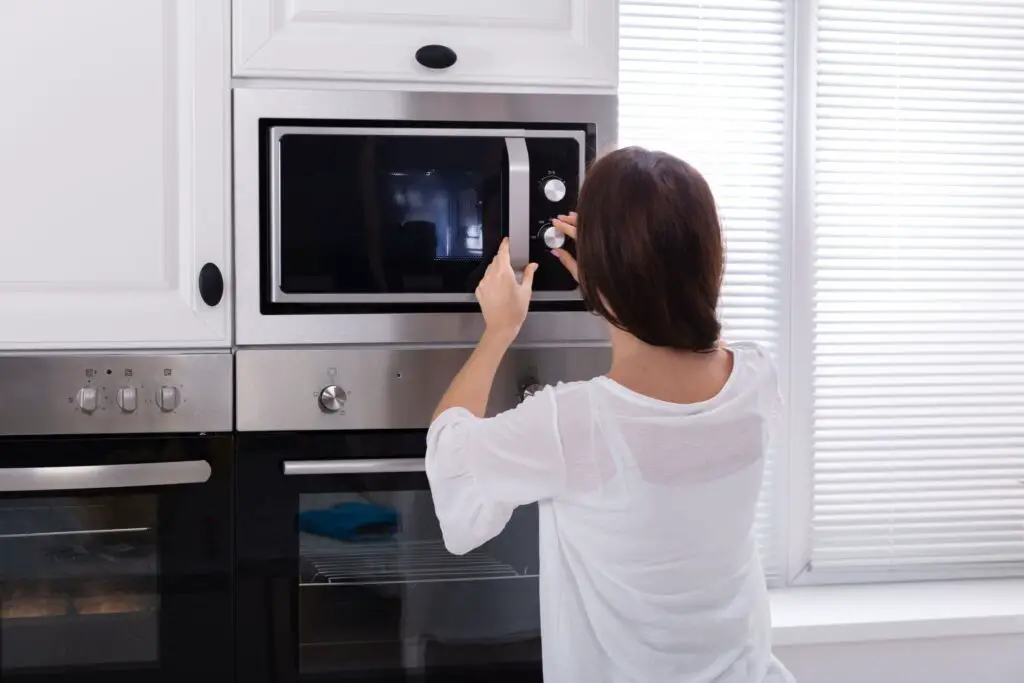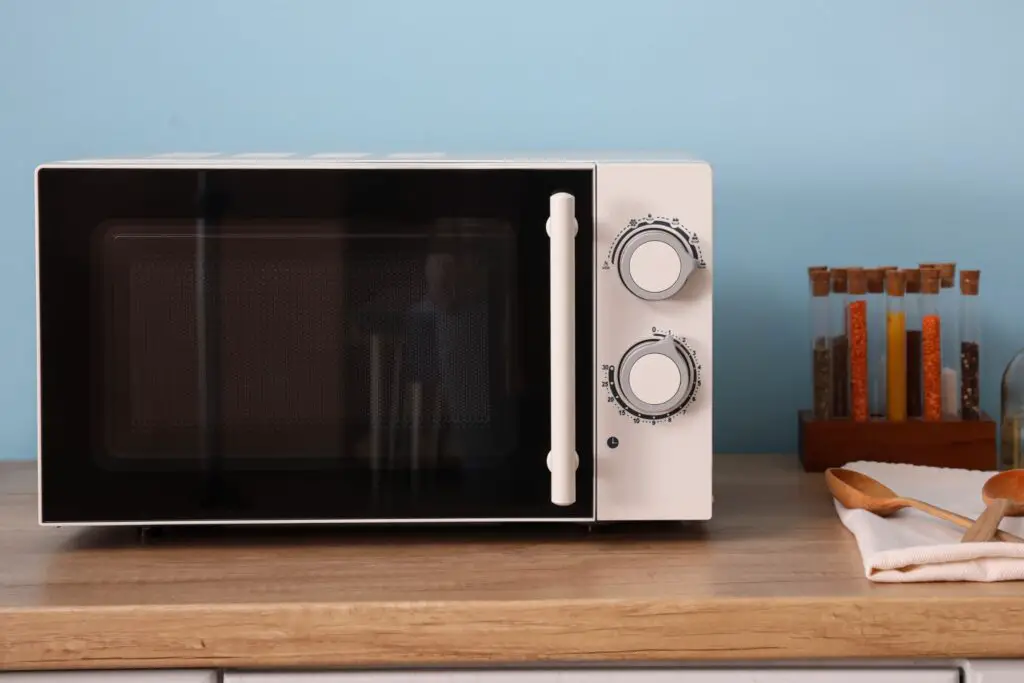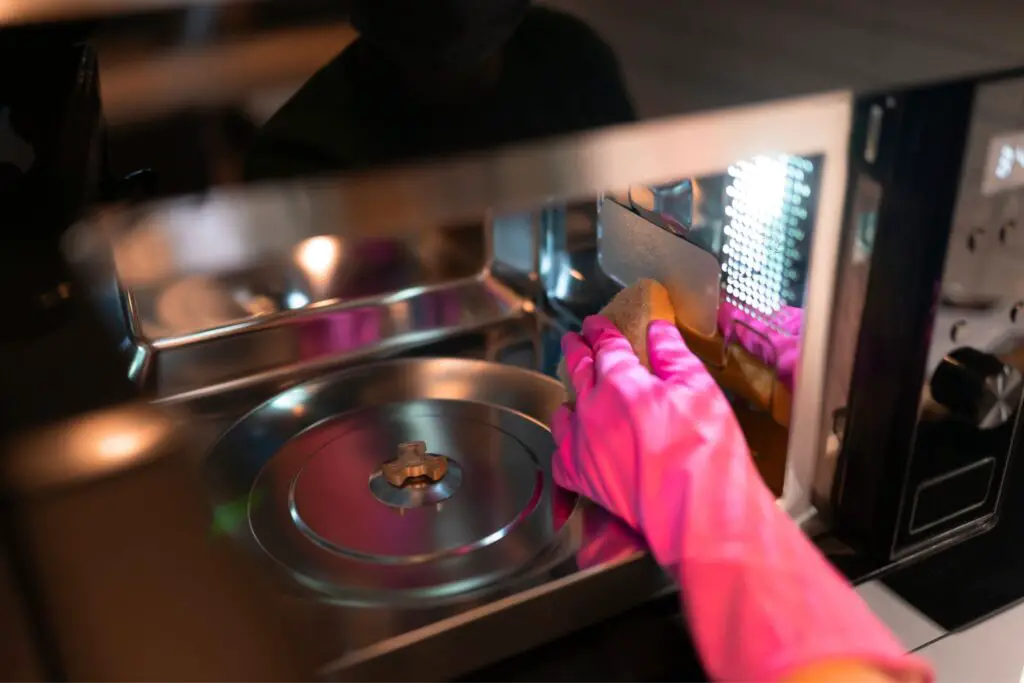Originally Created on: May 10, 2023 @ 9:02 am
Do microwaves lose power over time? you might have wondered. If you’ve ever gone to heat something up in the microwave and noticed that it isn’t as hot as it used to be.
In this article, let’s explore the pros and cons of microwaves losing their power and whether or not your trusty kitchen buddy is losing its steam.
You May Also Like: Why Does My Oatmeal Overflow In The Microwave [COMPLETE Answer + 3 Tips]
Table of Content
Do Microwaves Lose Power Over Time
The answer to this question is yes and no. On the one hand, it is true that over time microwaves do become less effective due to normal wear and tear. This loss of power can result in uneven cooking, slower heating, and longer cooking times than usual.
On the other hand, if your microwave is regularly cleaned and well-maintained, you can potentially keep it performing well for a longer period of time.
Make sure you clean off any residue left behind by food and wipe down the interior walls after each use to keep it running efficiently.
Additionally, regularly replacing the microwave’s filter can also help maintain power levels.
How Do You Know If Your Microwave Is Losing Power?

After heating the food for the specified amount of time, touch it with your finger or a metal spoon. If it feels cool or lukewarm instead of hot, then your microwave likely isn’t producing enough power.
Second, watch how long it takes to heat your food. If it’s taking longer than usual to heat up, that could also indicate that there’s something wrong with the power output of your appliance.
Finally, make sure you keep an eye on any potential sparks coming from the inside walls of your microwave. If internal sparks are visible during use, this usually means there is a problem with the device, and needs to be checked by a professional.
What is The Common Failure of Microwaves?
A common failure of microwaves is that they will lose power over time due to wattage loss in the magnetron tubes inside. This can be caused by regular use and wear & tear, or simply because the appliance is just plain old.
When a microwave’s power is reduced, this will affect its cooking performance:
- Less heat is generated from the magnetron tubes
- A decrease in the intensity of microwaves reaching food during heating
- Inability to cook food evenly
- Taking longer for food to cook at a lower wattage level than what was originally designed for the model
- Heating elements may fail due to a lack of energy
The good news is that you can often replace damaged parts and regain some microwave power loss. However, if the appliance itself has seen many years of service and use, it might be best just to upgrade and buy a new one.
What Shortens The Life of a Microwave?

To figure out whether microwaves lose power over time, we need to know what shortens their life.
Sure, age is a factor—most microwaves have a lifespan of about 9-10 years. But you don’t have to wait that long for your microwave to start having problems.
Overloading
When you overload your microwave, you make it work even harder. That extra work can cause internal components of your appliance to wear down faster, leading to decreased power and shorter life expectancy.
To make sure your microwave runs smoothly and efficiently, only load it up with dishes that promise not to cause sparks or flames while they heat up.
Improper Maintenance
Failing to maintain a clean surface can lead to accumulated bacteria and germs. And this affects your food health as well as the performance of the appliance itself!
Make sure you regularly wipe down the outside and inside surfaces with a mild detergent solution and dry thoroughly with a soft cloth for peak performance every time you use it.
Also, check for anything blocking the vents at the top or back of the oven—this can trap heat inside and interfere with cooking times, plus add extra strain on important internal components.
So regular inspections and maintenance are key for getting the most out of your microwave over time.
Best Way to Maintain Your Microwave

It’s easy to overload your microwave, especially if you’re using large dishes or pans. Doing this can cause overheating, which can damage some internal components and reduce the life expectancy of your device.
So always double-check beforehand what size item you are putting into the oven, and use smaller dishes if possible.
Conclusion
As you can see, the pros and cons of microwaves losing power over time are pretty balanced.
Even though you need to be aware of how often and for how long you use your microwave, there really isn’t a need for panic if you use it regularly.
At the same time, you should be aware of the other factors that can affect its performance such as the age of the machine, the wattage of the oven, the size of the food and quantity of liquid it contains, and the temperature of the food.
With the right maintenance and care, you can ensure your microwave continues to work efficiently and lasts for many years.
Since a microwave is a relatively inexpensive and energy-efficient appliance, it’s a great addition to any kitchen.
With its ease of use, wide range of food preparation options, and time-saving capabilities, your microwave is sure to be your favorite kitchen appliance.

![Do Microwaves Lose Power Over Time [+3 SERIOUS Signs]](https://mykitchenapex.com/wp-content/uploads/2023/05/Do-Microwaves-Lose-Power-Over-Time-3-SERIOUS-Signs.jpg)